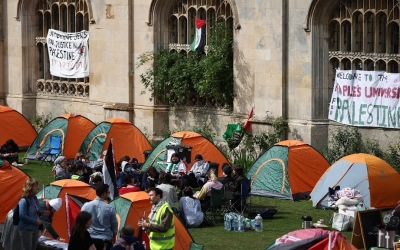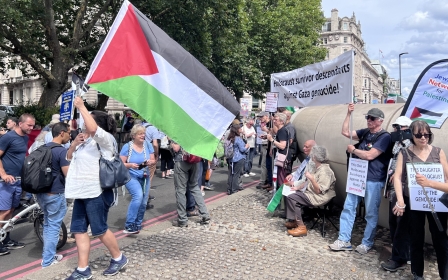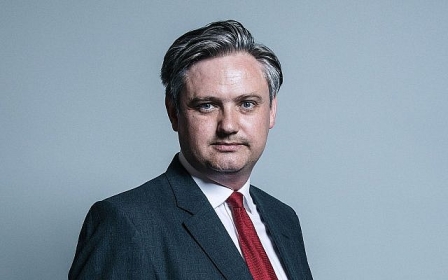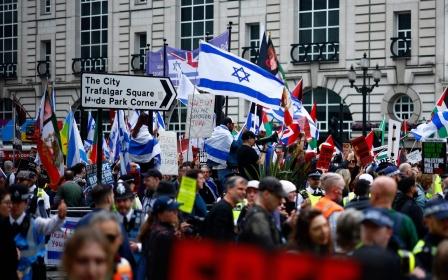London pro-Palestine march organisers accuse Met Police of disruption tactics
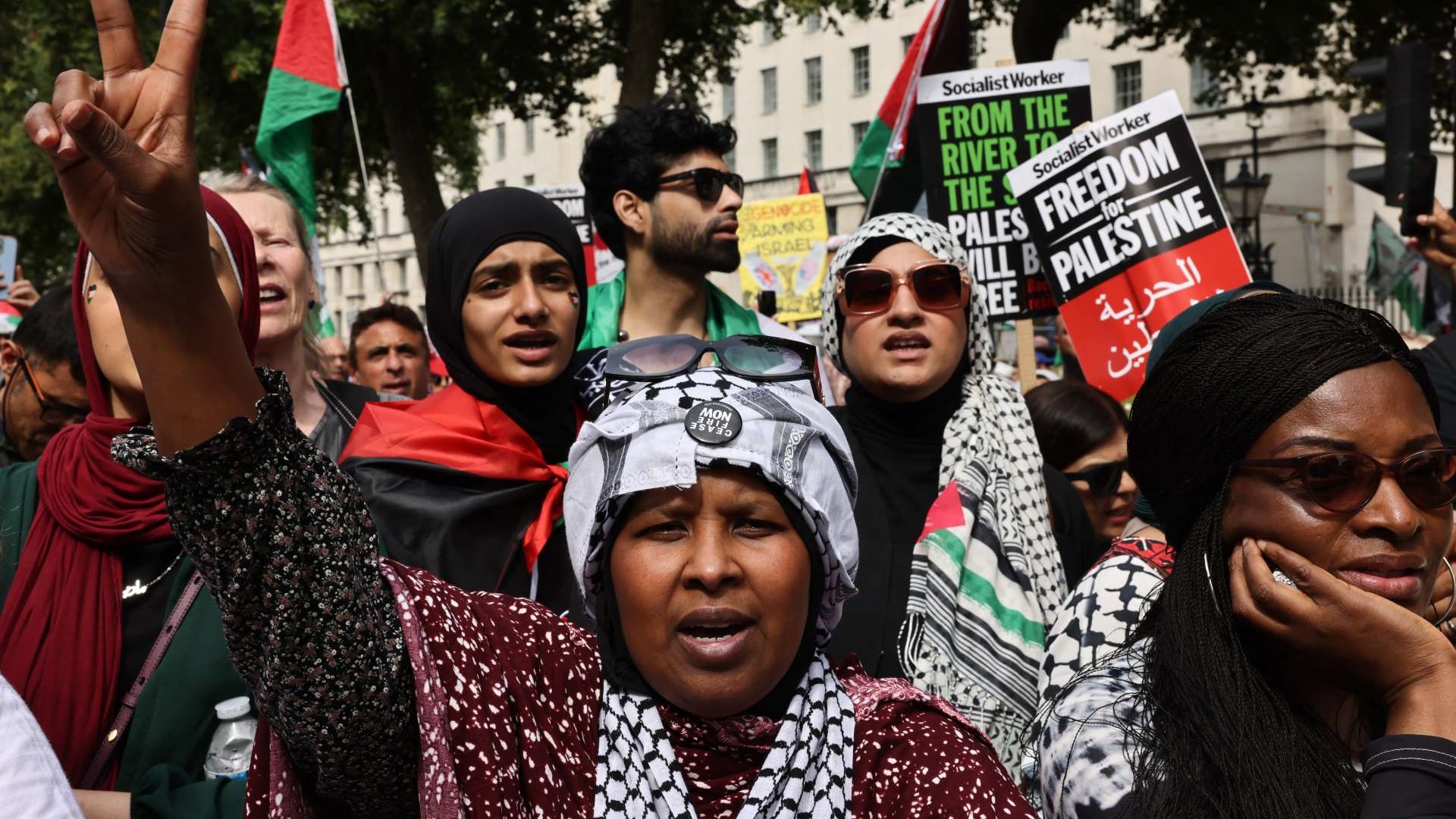
Protest groups planning Saturday’s national demonstration for Palestine have complained of "last-minute" restrictions imposed on them by the Metropolitan Police, which they say amount to an attack on their democratic rights.
Pro-Palestinian demonstrations attended by tens of thousands of people have taken place regularly in London since the start of the war on Gaza last October. For the first time on Saturday, however, organisers plan to march from the centre of the city to the Israeli embassy in Kensington, west London.
But restrictions imposed on organisers this week include pushing back the start time of the protest to 2.30pm, two-and-a-half hours after the midday gathering time already advertised on social media, and the usual start time for previous demonstrations.
Middle East Eye understands that police have also told organisers that participants could be arrested if they march before 2.30pm.
The coalition organising the protest, including the Palestine Solidarity Campaign, Friends of Al-Aqsa, Stop the War Coalition and the Muslim Association of Britain, condemned the move and said it was an attack on protesters' right to freedom of assembly.
New MEE newsletter: Jerusalem Dispatch
Sign up to get the latest insights and analysis on Israel-Palestine, alongside Turkey Unpacked and other MEE newsletters
“For 18 consecutive marches since October, we have gathered at noon and commenced shortly thereafter that - an arrangement that accommodates those travelling long distances, including thousands who have pre-booked coach travel,” the coalition said in a statement.
“The last-minute disruption of these plans, without any clear rationale, raises serious questions about the police’s respect for our democratic rights.”
'Normally, they use excuses like how the protest will impact local businesses and that it will not coincide with people leaving a local synagogue'
– Protest organiser
The coalition added that it had notified the police of its intention to march on 7 September nearly a month before, on 8 August.
Organisers who attended previous meetings with London's Metropolitan Police to discuss protest routes told MEE that the Met had cancelled meetings and been “confrontational” with organisers.
“These tactics are nothing new. They have tried to change the route and time on many occasions,” said one organiser who wished to remain anonymous.
"Normally, they use excuses like how the protest will impact local businesses and that it will not coincide with people leaving a local synagogue after Shabbat services."
Speaking to MEE at a press conference on Thursday, Chris Nineham of Stop the War said police had not explained why restrictions had been imposed on the march.
“The fact of the matter is that the police has created an unprecedented situation by providing no explanation for delaying our protest. I mean is that legal?” said Nineham.
“In order to impose restriction orders they have to show the protest risks creating public order issues but we just don’t know. One reason could be that we’re going to the embassy but again that’s not been communicated to us.”
Counter-demonstration at embassy
Saturday’s march coincides with a counter-demonstration organised by a group called Stop the Hate UK, which appears to have been first announced on social media three days ago.
In subsequent posts on social media, it called on people to gather outside the Israeli embassy on Saturday afternoon to remember the 364 people killed by Palestinian militants and others taken hostage at the Nova music festival during the 7 October Hamas-led attacks in southern Israel.
"Let’s dance for those who cannot. Let’s dance to keep their spirit alive. Let’s dance to bring them home. Join us. Spread the word. Let’s make it a big one," the group said in a post promoting the event, which it has also dubbed "Party at the Embassy!"
One organiser of the pro-Palestine march told MEE that police wanted to keep the two events apart.
“The police, this time they wanted to ensure the protest would not coincide with a counterdemonstration outside the Israeli embassy, which was announced three days ago.
“The police said they wanted to delay us leaving so the other protest can come through, but it looks like another tactic to delay and stop us practising our democratic right.”
During previous national marches the police have imposed public order restrictions in the area outside the Israeli embassy, giving themselves powers to restrict protest in a given area by arresting any individuals who plan to protest there.
Guidance published by the police earlier this week set out conditions including times and locations at which protesters were permitted to gather and march, and the route of the march from Regent Street to a gathering point on Kensington Road, south of Hyde Park.
It prohibits protesters from entering the road on which the Israeli embassy is located, entrance to which is usually restricted by a security barrier, as well as from gathering on a short stretch of Kensington High Street in front of that junction.
Asked for comment, the Metropolitan Police directed MEE to remarks by Deputy Assistant Commissioner Ade Adelekan on Tuesday.
"We fully appreciate the scale of the demonstrations, with participants attending from across the country, and recognise that a delay in start time may inconvenience people. However, these changes are necessary to balance the wider impact to those who live, work and visit London,” he said.
Middle East Eye delivers independent and unrivalled coverage and analysis of the Middle East, North Africa and beyond. To learn more about republishing this content and the associated fees, please fill out this form. More about MEE can be found here.


